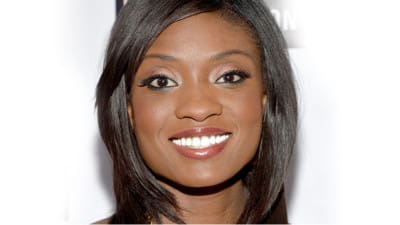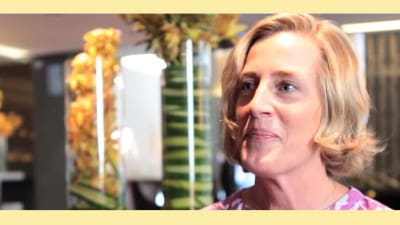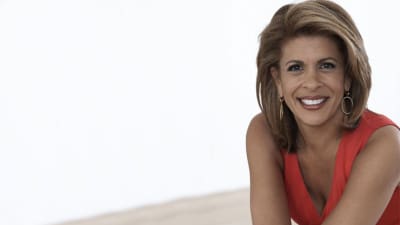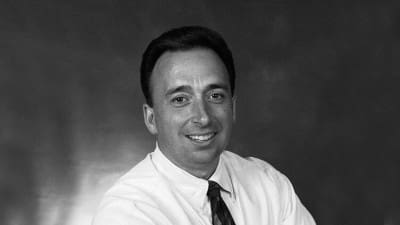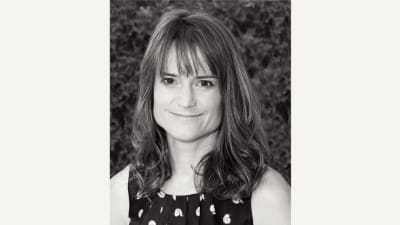Lola Ogunnaike was working her way up the ranks as a features reporter, making the jump from the New York Daily News to the New York Times, when her career took its first lump in 2006: a one-week suspension from NYT, reportedly for appearing on The View without her editor’s permission.
“If you can really get the answer to that question, then you will be able to tell me something I don’t know,” said Ogunnaike, regarding the suspension. “I can’t answer that question because, at the end of the day, I don’t really know why.”
Also on Mediabistro
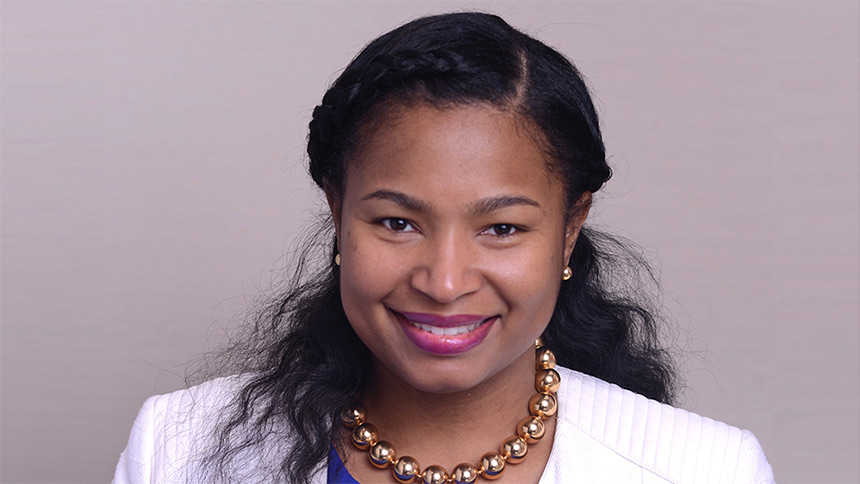

Regardless of the reason, Ogunnaike’s newfound national TV exposure didn’t go unnoticed as CNN made her an offer that she “couldn’t refuse,” ensuring that millions would know her as more than just a byline for years to come.
Name: Lola Ogunnaike
Position: Today Show contributor, Arise Entertainment 360 host.
Resume: Features reporter at the New York Daily News and, later, The New York Times. Made her first appearance as a guest host on The View in 2006. Became an entertainment correspondent for CNN’s American Morning in 2007, where she covered the Academy Awards, Grammys and Sundance Film Festival. Interviewed First Lady Michelle Obama for the 2011 BET special Michelle Obama: Impact Africa. Provided commentary for television programs on CNN, MTV and VH1. Currently, a contributor for Today and MSNBC and a freelance reporter. Has penned more than two dozen cover stories and been published in Rolling Stone, Vibe, New York magazine, Elle and Glamour. Currently contributes her pop culture knowledge to the Today Show as well as hosts Arise Entertainment 360, a daily culture and entertainment series airing on Sky TV and available on BET CENTRIC.
Birthday: September 13
Hometown: Fairfax, Va.
Education: B.A., English Literature, University of Virginia. Master’s degree in journalism from New York University.
Marital status: Married
Media idol: Barbara Walters, Charlie Rose, Oprah Winfrey
Favorite TV show: Revenge and Game of Thrones
Guilty pleasure: French fries
Last book read: The Thing Around Your Neck by Chimamanda Ngozi Adichie
Twitter handle: @lolaogunnaike
You’re one of the elite few freelancers who seem to get bylines and cover stories in all the big publications. If you had to name one thing that got you to that point, what would it be?
I have always had side hustles. So, when I was at the [New York] Daily News, I was on contract with Vibe magazine. When I was at The New York Times, I was often called to appear on television to discuss the pieces that I had written for the style section and the arts and leisure section. I’ve just always found that having my hand in many different pots has served me well over the years.
Every writer hates pitching. How much pitching do you do these days, and what’s the key to building great relationships with editors?
I don’t have to pitch nearly as much as I used to when I was young, because I’ve managed to cultivate some strong relationships with editors along with television producers. I think one of the key things is to make sure they know who you are. That can be as simple as asking them out for coffee or tea or asking them out to dinner and offering to pay for both of those things, which is very important.
But it’s also just following up with a link to a story that you may have written, something as simple as “You may not have gotten the chance to see my New York Times piece in the style section, thought you may be interested in this.” Things like that really go a long way, because the truth of the matter is, what I found in my years in the industry is that most people don’t follow up. So, if you actually do, then that puts you head and shoulders above the pack.
Where does your BET interview with Michelle Obama rank in the hundreds of interviews you’ve conducted in your career?
I think it’s safe to say that she’s number one. Meeting her was definitely its own unique and amazing experience, but actually interviewing her on the continent of Africa was also really powerful and a really full-circle moment for me given the fact that my parents are actually immigrants from Nigeria. For me to return to the motherland and interview the first black First Lady on the continent from where my parents came was just really powerful.
You earned your Master’s degree in journalism from NYU. What’s your stance on future journalists going to grad school in order to study the craft? Do you recommend it if you didn’t study it in undergrad?
If you studied journalism in undergrad, then I don’t think a graduate school degree in journalism is necessary. But if you’re new to the craft, I definitely think some education is required. Now, you might not decide to pay $70,000 or $80,000 for the degree; maybe you will take a series of classes on mediabistro.com.
But what I found is I think people underestimate how difficult journalism is. It’s not just sitting at your computer and spouting off your opinions about Beyoncé’s dress at the Met Gala. There is a structure to it, and I feel like that is sorely lacking in a lot of what’s being passed off as journalism today.
Why did you decide to leave New York Times for CNN in 2007? Looking back, would you do things differently?
I would absolutely not do anything differently. CNN made me an offer that I couldn’t refuse. I had been at The New York Times for five and a half years and I was ready to try something different. And when CNN comes knocking on your door, it’s really hard to say no.
How would you describe your time on American Morning at CNN?
The hours were absolutely brutal. You hear about people like the Matt Lauers and Katie Courics of the world making astronomical amounts of money — they completely deserve it because waking up at the crack of dawn is no joke. The show would begin at 6 a.m. and end at 9 a.m., which means we often had to be in the building by 4-4:30 a.m. And if you were turning a story for the next day, you essentially work anywhere between 12-15 hours.
With that said, it was a thrilling experience and I met some of the funniest and most entertaining people that I’ve ever had the chance to work with. CNN was definitely a blast.
How much would you credit your 2006 suspension from The New York Times for jump-starting your TV career?
I credit The View for jumpstarting my television career. When I appeared on The View, I mainly had been known to people as just a byline. So, when they saw a face attached to the byline, I think it just intrigued people more about who I was.
Getting the opportunity to go to lunch with Barbara Walters was a thrill of a lifetime as not many people can say they were able to do that and they’ve been able to do that. I’m very fortunate and whatever happened as a result of that experience was well worth it.
What obstacles did you have to overcome as a Nigerian woman in a mostly white male journalism industry?
One of the things that’s always been important to me as a journalist is making it clear to my editors and producers that I can do all sorts of stories. I can report on all sorts of stories. I think there’s an assumption that if you’re black or a woman, you will only want to write about things that interest women or subjects that interest black people.
For me, I’ve always wanted to make it clear to people that I’m not only curious about a number of things, but that I have the ability to report on a number of things as well.
What was your initial reaction when you heard that Beyoncé won first place in the Arts & Entertainment category of the New York Association of Black Journalists awards? Is this award a total slap in the face to real journalists?
You mean other than the fact that I didn’t win? [Laughs] I’m not outraged about it because I see it for what it is. To me, it was an obvious publicity stunt and it worked because you’re asking me about it and it got picked up everywhere. So, it’s a win-win for both parties involved if you’re taking the cynical look at it.
Now, would I have voted for her? No. I’m sure Beyoncé’s not losing sleep over the fact that she robbed a young journalist of their award. I’m sure she’s never even heard of the New York Association of Black Journalists.
How has social media helped you in covering celebrities? Have they made themselves too available to not only the media but also the general public?
Twitter has made my job a bit easier because you no longer have to wait for a publicist to give you a quote about an incident or not give you a quote about an incident. You can actually go to the celebrity’s Twitter page and usually find the answer right there.
And, as a reporting tool, I wasn’t on Twitter before I went to South Africa with the First Lady. Part of my contract for that project was I had to tweet from South Africa while I was there. I realized just how important it is, because I could give instant updates, and it allowed my readers and eventual viewers of the documentary to feel like they were really involved and instantly involved. I gave them a bird’s eye view of what it was like to travel with the First Lady.
I sent pictures of her with her daughters and her grandmother. I sent pictures of Secret Service men. I gave them updates of what it was like to be in the motorcade and all of those things. I came to understand just how important of a tool Twitter and Facebook can be if employed properly.
This interview has been edited for length and clarity.
